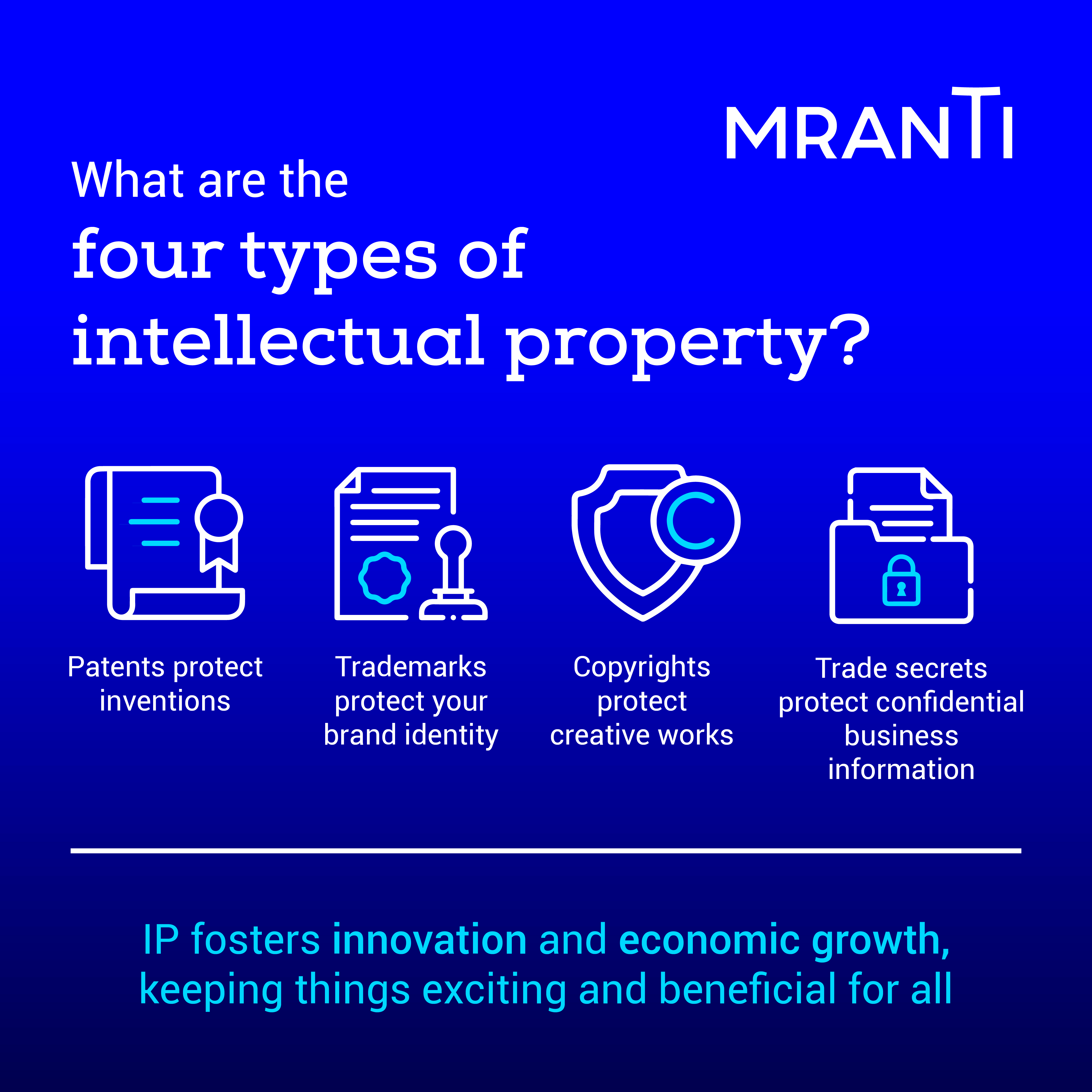Intellectual Property Isn't Just For Big Companies. Here's How It Applies To Your Ideas
To navigate our way in the race of innovation, we must first understand the different types of IP.
Have you ever thought about why Intellectual Property (IP) is essential?
In case you didn't know, IP refers to the ownership and rights to creative works, be it an idea, an invention, or artistic expression.
To understand why IP matters, try and imagine the following scenario:
You're participating in a race, and you've trained for months, sacrificing both your sleep and social life. You're in the lead, but suddenly, another runner overtakes you.
Their edge? Your well-devised running strategy, your personal training schedule, and even your customised high-performance running shoes, without asking or giving you credit!
A sense of injustice creeps in — that's your hard work, your innovation, and all the things you spent months perfecting.
Dr Afnizanfaizal Abdullah, MRANTI's Head of Technology Commercialisation, Ecosystem Development, explains that the situation described above is commonplace in the world of research and business
"Researchers, startups, and entrepreneurs often find themselves in their own races of innovation, with their most valuable asset being IP. These custom strategies and prototypes all represent IP that we need to protect.
"Protecting IP isn't just about us staking a claim on our hard work. It's about being one step ahead in a race of innovation," he said.
For example, during the 1980s, Steve Jobs filed for his first patent: the Personal Computer
According to Dr Afnizanfaizal, Jobs understood that the ideas, designs, and unique code used to power the machine were just as important as the device itself. Since then, the Apple co-founder went on to trademark the Apple brand, patent innovative designs, and use copyright laws to protect the software used on Apple devices.
"What this demonstrates is that IP rights have been key to safeguarding Apple's assets, ensuring they are not infringed while giving the company a competitive advantage in the tech industry.
"Much like Jobs, navigating the innovation race requires us to first understand the different types of IP," he added.
Here are the four types of IP you should know about:
1. Patents protect your inventions. For example, a startup might patent a new algorithm for more efficient data processing.
2. Trademarks protect your brand identity. These include your company's unique logo or name.
3. Copyrights protect your creative works. Whether it's a novel, song, or software, copyright laws protect original works of authorship.
4. Trade secrets protect confidential business information. Your company might possess a unique manufacturing process that you'd want to keep under wraps — and trade secrets make this possible.
When pursuing IP rights, it's important to remember that legal frameworks and international conventions play a crucial role.
For instance, in order to patent your invention, the following criteria must be met:
- It must be new; you must be bringing something fresh to the table
- It must be capable of industrial application
- It must be inventive, or at least involving inventive steps or being non-obvious to a person skilled in the art
Aside from protecting your innovative ideas and inventions, IP also plays a part in technological advancement and economic growth
In the pharmaceutical industry for example, when a company succeeds in developing a new drug, having a patent on the drug allows them to recoup their investment, and the general public benefits from a potentially life-saving medication.
In Malaysia, government initiatives like Dasar Pengkomersialan Harta Intelek dan Reka Cipta Dibiayai Kerajaan 2021-2025 have been established to prioritise IP protection and the commercialisation of IP through government-funded research and development, creativity, and innovation. These policies are designed to encourage local inventions, works, and designs that will create jobs and add to the country's economic growth.
In your journey to bring your innovative ideas to fruition, you will inevitably face many challenges along the way
You can count on MRANTI, Malaysia's central research and innovation commercialisation agency, to help you realise your ideas.
They offer a wide range of solutions, from ideation and research, to prototyping, validation, scaling, and exploring potential partnerships. With their internal team of experts, they will foster the growth of innovative business ideas while guiding you through the steps of securing your IP rights.
What's also exciting is that MRANTI will be launching their all-in-one platform soon, which aims to make IP protection and monetisation smoother and more streamlined than before!
Scheduled to be launched soon, the platform is designed to offer tools and resources to match your ideas with their appropriate IP rights.
Stay informed on the latest updates about the upcoming launch by following MRANTI on social media platforms such as Facebook, Instagram, and X
Hey, SAYS readers. Your voice matters, and we want to hear it loud and clear!
Take this special survey to help us give you the content you love most:





